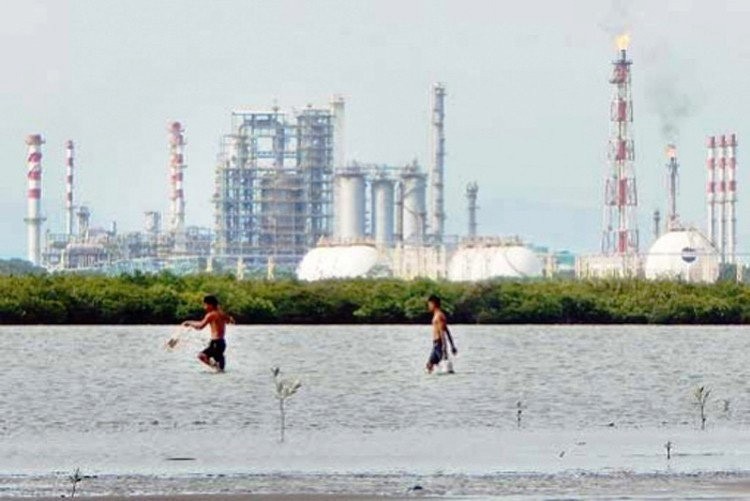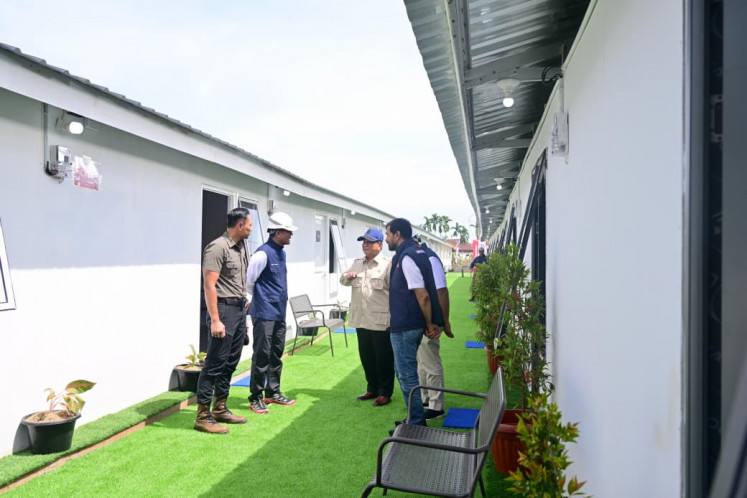Popular Reads
Top Results
Can't find what you're looking for?
View all search resultsPopular Reads
Top Results
Can't find what you're looking for?
View all search resultsEDITORIAL: The threat of oil import bill
The investment climate in the hydrocarbon industry has become utterly unattractive despite the big oil potential.
Change text size
Gift Premium Articles
to Anyone
P
etroleum industry leaders and energy economists have warned President Joko “Jokowi” Widodo that allowing the country to increase its dependence on oil imports, which now account for more than 50 percent of domestic consumption, would make the economy highly vulnerable to the vagaries of wildly volatile oil prices and rupiah depreciation.
The warning was made again at a forum hosted by the Indonesian Petroleum Association (IPA) in Jakarta on Monday as the President and his top policymakers seem to remain ignorant of the critical condition of the industry. Oil production has declined steadily from 1.2 million barrels per day (bpd) in the early 2000s to about 800,000 bpd at present, while domestic consumption has risen steadily to 1.6 million bpd along with economic growth.
While proven oil reserves have decreased to 3.3 billion barrels, investment in exploration — the only way to increase reserves — plunged to a mere US$100 million last year from $500 million in 2015 and $1.1 billion in 2014.
This means the investment climate in the hydrocarbon industry has become utterly unattractive despite the big oil potential. The Directorate General of Oil and Gas and oil regulatory body are fully aware of the critical condition, but the President and ministers have yet to show a sense of urgency to launch concerted reform to improve the investment climate.
The low price of oil (US$50) since the fourth quarter of 2014 seems to have lulled the government into complacency as domestic fuel prices needed no hike and oil import bills could be well managed. Moreover, the low price of oil has proportionally decreased the role of the petroleum industry in the economy as it now contributes less than 5 percent to state revenue and only around 9 percent to total exports.
However, data on oil production and consumption projection from the National Energy Plan for 2015-2050 and a study by the ReforMiner Institute show that without any significant production increase, Indonesia’s oil imports could reach as high as $30.37 billion in 2020 and $41.87 billion in 2025 based on an average oil price of $50/bbl.
This is quite alarming because oil prices have always been highly volatile, influenced by economic and noneconomic factors. In mid-2008, for example, the price of oil reached as high as $140/bbl, but plunged to as low as $40/bbl in 2009, before rising again to $100/bbl in the first three quarters of 2014, then dropping to a range of $4050/bbl from 2015 until now.
The horrendous impact of high oil prices could be seen in 2014 when the price of oil was mostly $100/bbl. During this period fuel and electricity subsidies reached as high as Rp 350 trillion ($26 billion), which is three times as high as the cost of the MRT project in Jakarta.
The worrisome consequences of heavy dependence on oil imports are the adverse impacts it has on the balance of payments. High oil prices usually cause the rupiah to depreciate sharply, with all its damaging ramifications, as large oil import bills steeply increase the trade deficit. Hence, heavy dependence on oil imports always puts the economy at risk of being hit by a double whammy.










